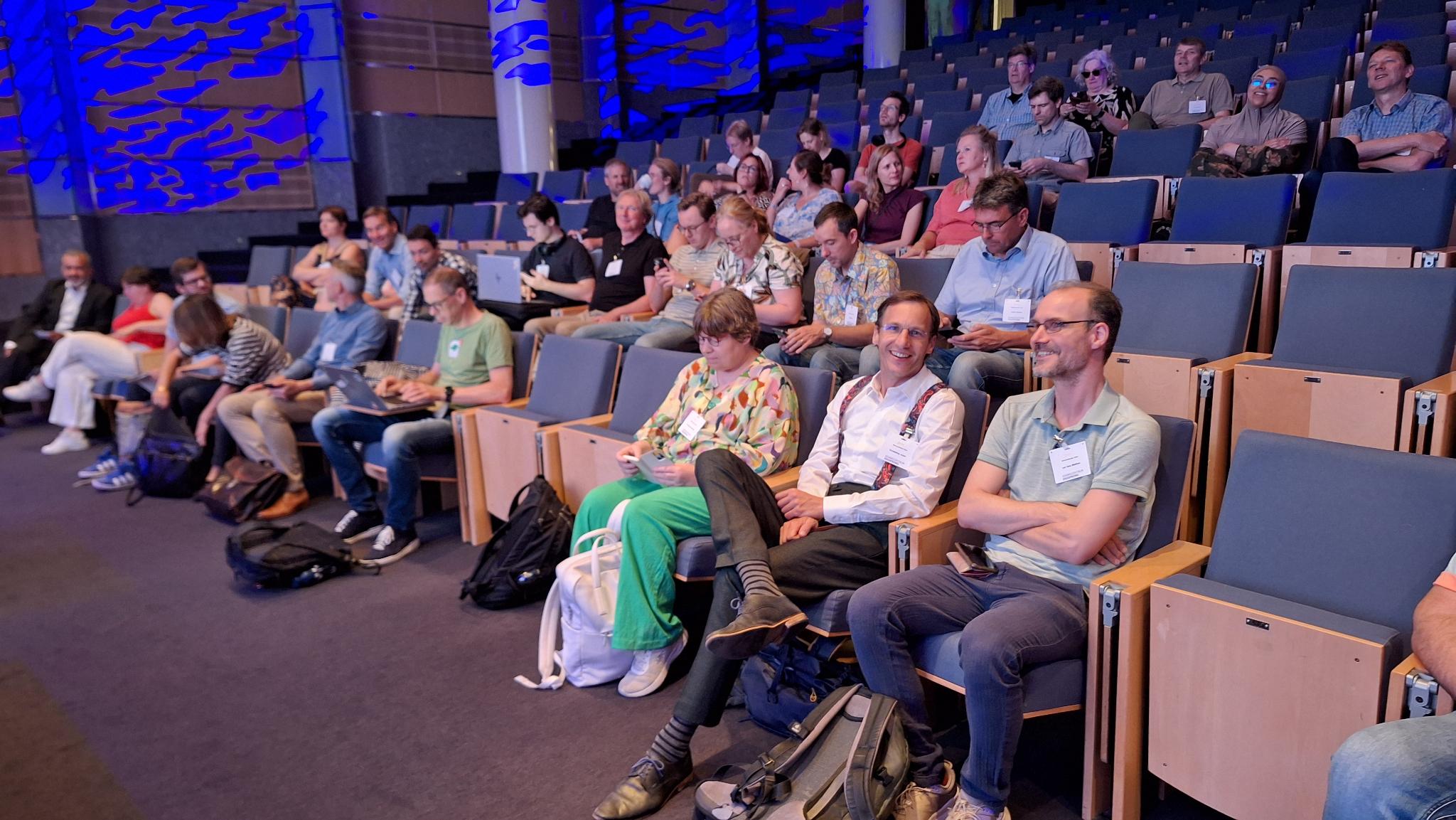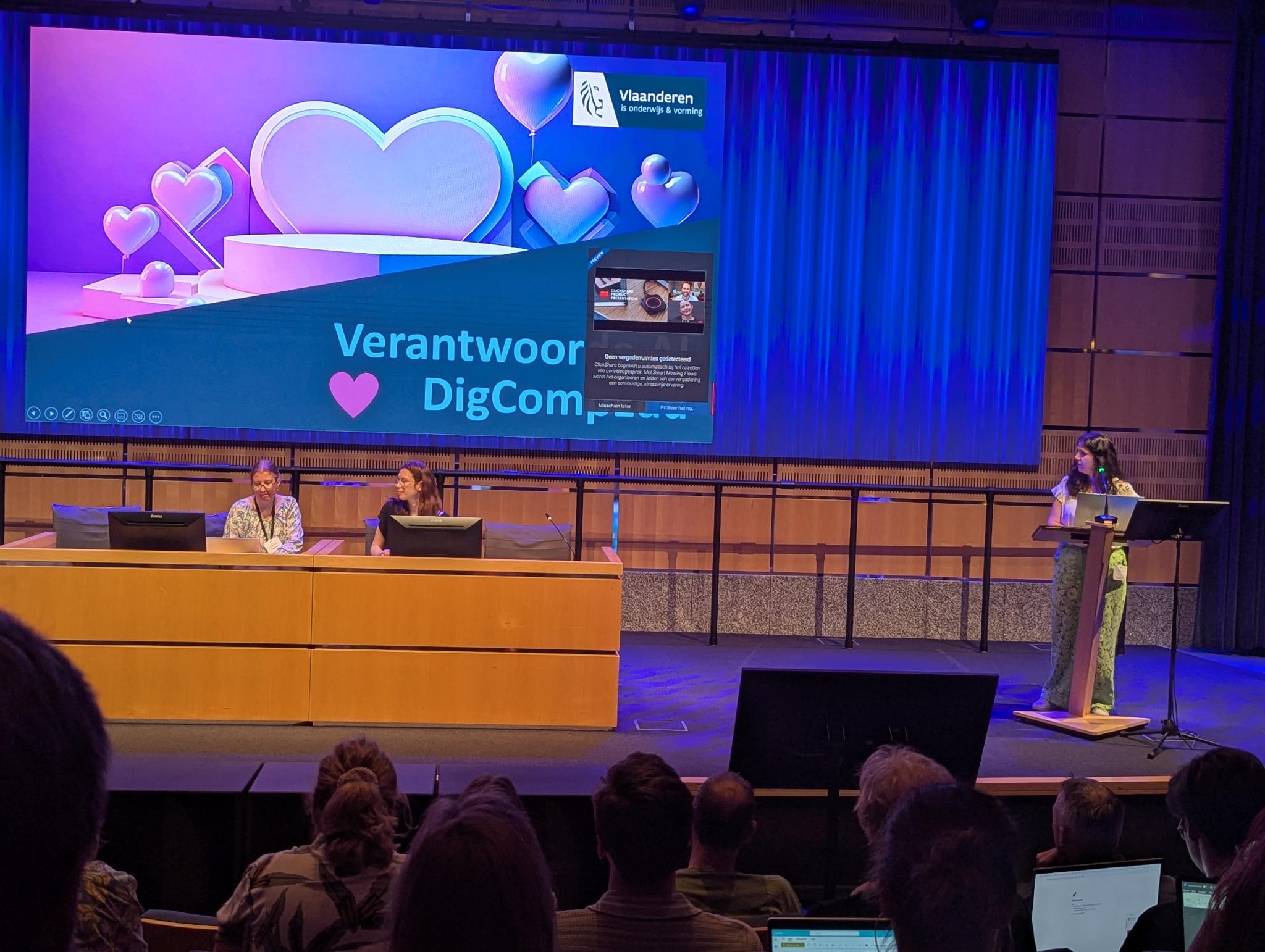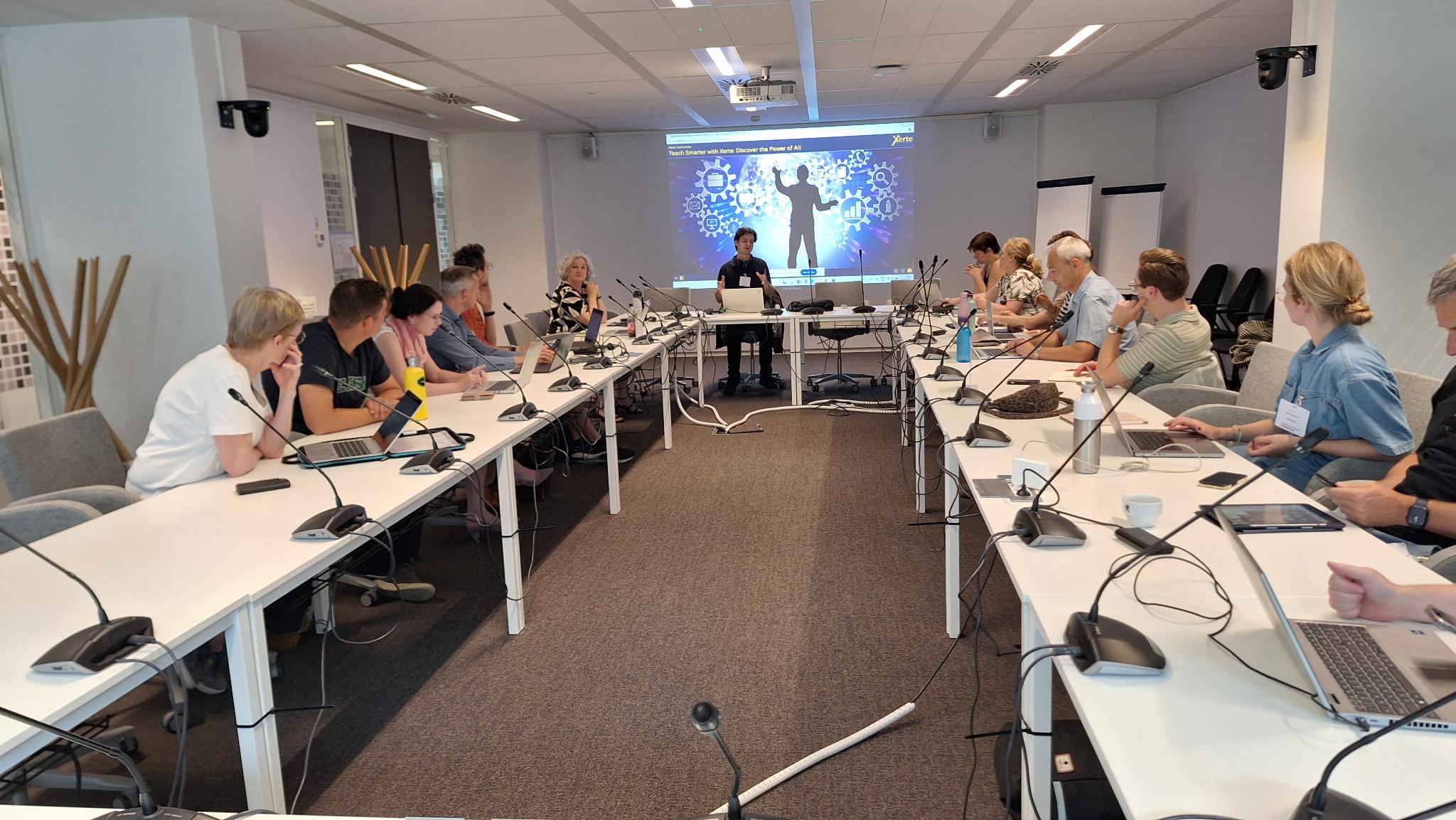
Mini conference highlights
June 25, 2025 | Collaboration and inspiration
As Xerte users from the Netherlands and Flanders, we know how to find each other. Knowledge and experience are exchanged throughout the year via Xerte Talks, the Xerte-forum, Xerte GitHub, the Xerte key-users group and the Xerte dialoog. And once a year we try to get together at a mini conference, where existing and new or curious users are very welcome.
 This year the mini conference was held in Brussels, thanks to the enormous hospitality of Kenniscentrum Digisprong, which has been working with Xerte for several years.
This year the mini conference was held in Brussels, thanks to the enormous hospitality of Kenniscentrum Digisprong, which has been working with Xerte for several years.
The day consisted of a keynote, discussions, presentations and workshops, with many opportunities for networking. Unsurprisingly, several participants also took the opportunity to explore Brussels. Even Manneke Pis turned out to be dressed in Xerte colors 😊.
Responsible use of AI
One central conference theme was the use of AI. AI integration is not something that the average Xerte user, or educational institution, embarks upon lightly. We have all become acquainted with the fantastic and often funny applications of it but using AI to develop education is something completely different.
Xerte is working hard on AI integration within its software. Where other platforms automatically add AI, Xerte approaches this in a completely different way. Together with DLearning, Xerte users are looking at appropriate ways to apply the benefits of AI in Xerte, without losing control or harming public values.
During one of the presentations, Alek Nasev explained what this AI integration will look like. In his workshop, there was then an opportunity to practice with the AI integration in a demo environment and discover how it works.
Attention was also paid to the ethical side of AI during this mini conference. Katrien Alen, policy officer and theme manager for AI at Kenniscentrum Digisprong, challenged us, in an interactive keynote, to think about where AI will take us and what we should think about together.

Katrien cited the definition of AI as drawn up by Unicef and the Council of Europe:
“AI refers to machine-based systems that can make decisions and predictions and recommendations based on objectives defined by humans that have an impact on real or virtual environments. AI systems communicate with us and influence our environment directly or indirectly. They often appear to work independently and can adapt their behavior by learning about the context.”
Her conclusion and message to us was:
“Professionalization and responsible AI go hand in hand. Responsible AI requires digital literacy, for example from teachers who use AI in their lessons, from staff who use AI to allocate rooms, from class councils who use AI to identify potential learning problems more quickly, and from learners who critically examine the answer to their question to a text-writing AI and understand why AI made a decision.”
Responsible use of AI within Xerte is not a foregone conclusion despite our mini-conference discussions. It remains the role of the professionals who work with Xerte to continue to improve their skills in this area and to critically examine what is and is not possible.
And the great thing is, as we learned from Alek, the AI integration within Xerte really puts the school/developer in a position to be conscious of the application of AI.
Workshops
In addition to AI, the use of Xerte was also discussed extensively. There were sessions on the word trainer, the application of Edlib, creating an escape room, the possibilities of the Xerte bootstrap for creating a mini-website, a study on learning analytics, the application of CSS, sharing and reusing and seamlessly integrating Xerte into the learning environment.

New functionalities
Finally, Tom Reijnders took us through the new functionalities that we can expect in Xerte 3.14. For example, the Xerte-XOT (interactive module) now has a sidebar option where the student can see the different parts of the learning object and view their progress. We already have the content page and the progress bar, but this sidebar gives a whole new dimension to motivating the students to keep learning.
The adaptive content page has been expanded with graphs that you can also use to compare with previous attempts. And Xerte-XOT now has the option to add source documents (such as Word, PDF, PowerPoint documents) to each page.
Tom also told us that from 3.14 it is possible to fix the header menu in the Xerte bootstrap (mini website). This always allows the student to retain an overview of where they are in relation to the whole project.
On to next year
This was a very successful mini-conference! Many thanks to Katrien Bernaerts and Kenniscentrum Digisprong for the organisation and their hospitality. We look forward to the next one and in the meantime let's keep in touch, via Xerte Talks, the Xerte-forum, Xerte GitHub, the Xerte key-users group and the Xerte dialoog.
Corine Martens and Inge Donkervoort
Sources and interesting links:
- Vision on AI – Kenniscentrum DigiSprong Flanders (English): https://www.vlaanderen.be/publicaties/responsible-ai-in-flemish-education-a-collaborative-process-from-development-to-use
- Watch the session by Alek Nasev on AI integration in Xerte here (English): https://video.digisprong.be/w/pmVJ8S72iDhYwmVGigc5Za
- Xerte Talks (Dutch): https://www.dlearning.nl/index.php/trainingen-events/webinars-evenementen
- Xerte-forum (English): https://xerte.org.uk/index.php/en/forum
- Xerte GitHub (English): https://github.com/thexerteproject/xerteonlinetoolkits
- Xerte key-users groep (Dutch): https://xerte.deltion.nl/play.php?template_id=10509#Xerte_Key-users_groep
- Xerte dialoog (Dutch): https://xerte.deltion.nl/play.php?template_id=10509#Xerte_dialoog

